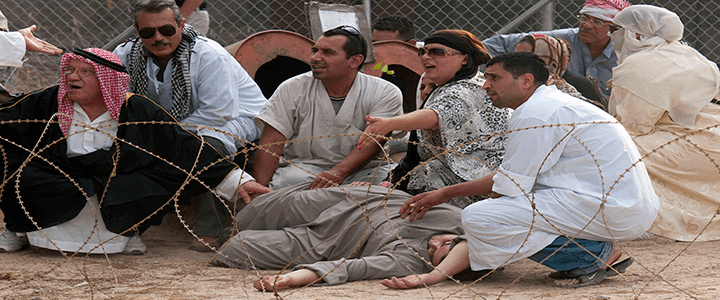When invaders from the north crossed into the People’s Republic of Pineland, U.S. Special Forces soldiers were sent in to organize discordant local militias. America’s goal: to build a unified Pineland guerrilla force capable of repelling invaders and stifling insurgents. Pineland has long been mired in unrest, a messy consequence of the Cold War. The United Provinces of Atlantica, to the north, sided with the Soviet Union; Pineland threw in with the United States. The decades that followed saw local strongmen rise and terrorists find a home there amid the regional instability. Because Pineland is a key ally in the region going back to World War I, the U.S. has a vested interest in keeping the country strong.
Those are the broad strokes of a military exercise called Robin Sage. Since 1974, it has been the culminating event of Special Forces assessment training. Robin Sage takes place across 8,500 square miles of North Carolina, and is spread over 15 counties. Its realism is mind boggling. Pineland has its own language, its own flag, its own currency (the don, which resembles Monopoly money), and even its own national anthem (“This is the land of the tall pine tree / where all of us used to live so free…”). Such details would be meaningless if not for the involvement of the local community—service members, retirees, and civilians alike—who wear Pinelandian garb and become part of a fictional nation plunged into chaos. They are the “role players” who make the simulation sing.
HALLOWEEN – BUT FOR WAR
Role playing is a huge part of modern military training. Actors—both volunteers and professionals—help soldiers prepare for faraway conflict, and there are an astonishing number of defense contractor jobs for men and women to get in costume, take up a new non-tongue, and make every day Halloween night. These jobs are spread across the country and call on diverse areas of expertise. You’re not, for example, going to give a theater major an M4. In Pineland, 350 soldiers with 10th Mountain Division play the roles of guerrillas. However, there are over a thousand participants in a single Robin Sage exercise, four hundred of whom are North Carolina residents—civilians, who are necessary to give a world life.
Role playing jobs aren’t limited to training the infantry. The intelligence field must likewise build little worlds to prepare counterintelligence officers for the unique challenges of identifying and neutralizing agents of foreign governments. As with anything else in the spy world, such role players would have actually been in counterintelligence at some point, and would be able to help develop curricula, teach candidates, and convincingly step into the role of a foreign spy or walk-in. What cooler costume could there be than spy?
Some role playing jobs, however, require no costume at all. Defense contractors must sometimes help train corps, division, or brigade commanders to run a war or a mission. In this case, the role player would sit behind a workstation or join the command support staff, relaying information to senior officers, and just as critically, accurately relaying the information back down. When storylines conflict, such role players must untangle them to keep the simulation running smoothly.
SLAYING DRAGONS
At a higher level, someone has to write these stories and populate them with characters who are believable and threats that correspond to those of the real world. (Consider that in Robin Sage, the detail of Pineland goes down to the don-to-dollar conversion rate.) These authors of warfare, so to speak, are called “special skilled role players,” and they aren’t plucked exclusively from the hoards of retired generals and colonels. While some inter-agency experience and familiarity with army doctrine is essential, just as important is the ability to seamlessly join a team engaged in high stakes work.
The job of planning these massively detailed war scenarios corresponds nicely to computer role playing games. Consider the breadth of those video game worlds, and the hundreds of little stories within. Your dwarf warrior might be sent ultimately to slay the dragon on the mountain, but along the way, he or she might run across a little village plagued by bandits, encounter a snow princess who’s lost her prince, and meet a goblin king who needs a message conveyed to a knight on some far off front line.
So too must a role player in the defense industry populate his or her scenario with small pockets of story that add up to a larger world. (Here, Pineland’s local strongmen, villages with sick livestock, and rumored terrorist cells keep Special Forces soldiers thinking and adapting in a nonlinear world—one that mirrors the real world beyond the borders of North Carolina.) And when the story is put into motion, the special skills role player will be there—part, for example, of the embassy staff, or the “host nation’s” government, dressed, as ever, in the local fashion, be it robes, suits, cloaks, or veils. On Halloween, after all, everyone gets to wear a mask.




